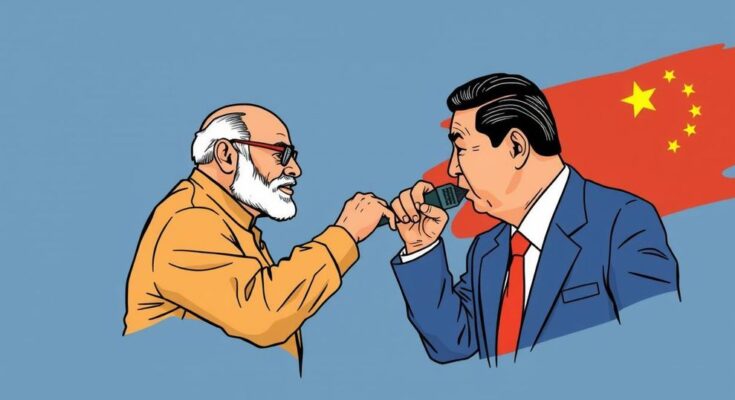Indian and Chinese officials reviewed troop disengagement in eastern Ladakh during a G20 summit meeting. External Affairs Minister S. Jaishankar and Foreign Minister Wang Yi highlighted progress in de-escalating tensions and discussed future bilateral relations. The meeting marked a significant step after resuming patrols post-disengagement.
During a meeting held on the sidelines of the G20 Summit in Brazil, Indian External Affairs Minister S. Jaishankar and Chinese Foreign Minister Wang Yi discussed the disengagement of troops in the Demchok and Depsang regions of eastern Ladakh. This dialogue marked the first significant engagement following the completion of the disengagement process at these two contentious points along the Line of Actual Control (LAC). In his remarks on the social media platform X, Minister Jaishankar acknowledged the progress made in the disengagement and articulated the importance of exchanging views regarding the future of India-China bilateral relations. He stated, “We noted the progress in the recent disengagement in the India-China border areas. And exchanged views on the next steps in our bilateral ties. Also discussed the global situation.” The disengagement procedures in Demchok and Depsang were finalized last month after both nations reached a consensus aimed at alleviating tensions stemming from their longstanding border dispute. Additionally, joint patrols in these areas, which had been suspended for over four years, were resumed following the agreement. This advancement in military cooperation underscores both countries’ commitment to stability in the region.
The ongoing border disputes between India and China have generated significant diplomatic tension, particularly in the areas of Ladakh. The Line of Actual Control (LAC) serves as the de facto border, but disagreements regarding territorial claims have frequently led to standoffs between the two nations’ military forces. Following extensive negotiations and a series of alignments, the recent disengagement signifies a pivotal step in enhancing bilateral ties. This meeting at the G20 Summit also reflects the broader strategic conversations important for maintaining regional peace and understanding the global context between these two major Eastern powers.
The recent meeting between External Affairs Minister S. Jaishankar and Foreign Minister Wang Yi indicates a positive trajectory in India-China relations following the successful disengagement of troops. With resumed patrols in previously tension-filled areas, both countries aim to reinforce their bilateral ties while navigating the complexities of regional and global dynamics. The discussions at this high-level diplomatic engagement signify a mutual understanding moving forward in their relationship.
Original Source: www.ndtv.com




